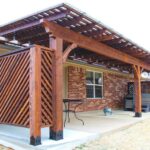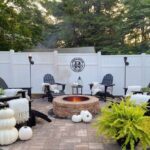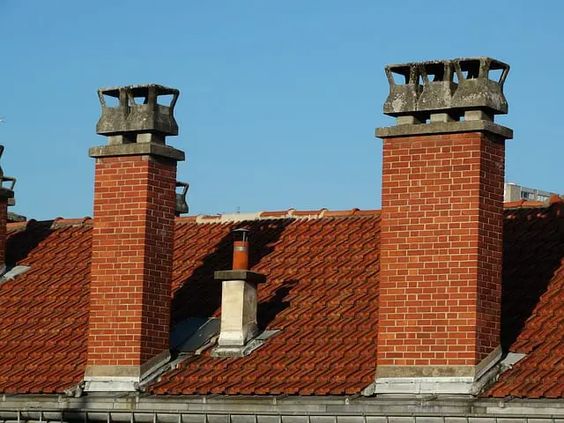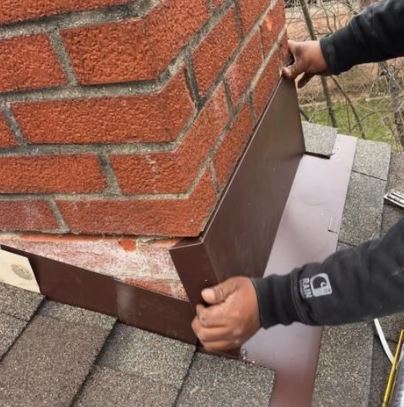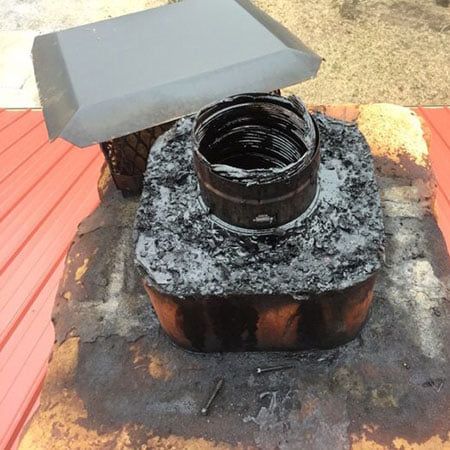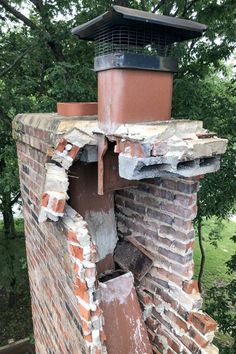Chimneys are an important part of any home with a fireplace or wood-burning stove. They help vent smoke and exhaust from the fireplace safely outside the home. However, like any other part of a house, chimneys can become damaged over time and require repairs. This raises the question – are chimney repairs covered by homeowners insurance?
The answer is – it depends. Standard homeowners insurance policies cover sudden and accidental damage to the structure of your home, including the chimney. However, damage from lack of maintenance or normal wear and tear is not covered.
In this blog post, we’ll take a detailed look at what causes of chimney damage are covered and not covered by homeowners insurance. We’ll also provide tips on how to maximize your chances of getting an insurance claim approved.
Key Takeaways
- Homeowners insurance typically covers sudden chimney damage like fires or storm damage, but not gradual wear and tear or lack of maintenance.
- Take photos/video to document chimney damage and keep records of maintenance to support insurance claims.
- Review your policy to understand exactly what perils and causes of chimney damage are covered and excluded.
- Hire certified chimney inspectors to assess damage and contractors for repair estimates to include with claims.
- Be persistent in calmly explaining why you think the damage should be covered if your claim is initially denied. Escalate to supervisors as needed.
When Homeowners Insurance Will Cover Chimney Repairs
Homeowners insurance will typically cover repairs if the damage was caused by a covered peril. Covered perils are sudden, accidental damages not resulting from neglect. Some examples of covered chimney damage include:
- Chimney fire – If a covered peril like a lightning strike or electrical issue caused a chimney fire that damaged the structure, repairs would be covered. However, if the fire resulted from a buildup of creosote due to lack of maintenance, it would not be covered.
- Falling tree damage – If a tree falls and damages the chimney, repairs would be covered under standard homeowners insurance.
- Collapse – If the chimney collapses suddenly due to the weight of ice and snow, insurance will usually pay for repairs. However, if the chimney was already damaged or neglected, the collapse may not be covered.
- Lightning strike – Direct lightning strikes that damage chimneys are covered perils. Repairs from both fire and structural damage would be covered in this situation.
- Storm damage – Strong winds, hail, or other storm perils that damage the chimney would be covered causes.
The key is being able to prove that sudden accidental damage from a covered peril caused the damage to the chimney. Having documented proof of regular chimney maintenance will help demonstrate that you properly cared for your chimney if questions arise.
When Homeowners Insurance Won’t Cover Chimney Repairs
There are several common situations where standard homeowners insurance will not cover chimney repairs:
- Wear and tear – Gradual structural deterioration of the chimney over time due to normal aging is not covered. Things like crumbling mortar joints, cracking bricks or stonework, or a leaning/collapsing chimney after years of use would be considered wear and tear.
- Improper maintenance – Damage that occurs because the chimney was not properly maintained, like a chimney fire caused by a buildup of creosote, is not covered. Lack of maintenance that leads to or worsens damage will not be covered.
- Pre-existing conditions – If the chimney was already damaged in some way before an incident like a collapse occurred, repairs may not be covered since the damage was pre-existing. The policy may only cover resultant damage to the home, not repairing the deteriorated chimney.
- Improvements not up to code – Updating a damaged chimney to bring it up to current building code standards is not required nor covered by insurance. Only restoring it to its original state is required.
Homeowners insurance typically covers chimney repairs if the damage is caused by a covered event, like a lightning strike or fire.
https://www.policygenius.com/homeowners-insurance/does-home-insurance-cover-chimney-repairs/
The main takeaway is that homeowners insurance does not cover damage that occurs over time. It must be traceable to a single, sudden, and accidental event that damages the chimney. Never assume normal maintenance or deterioration damage will be covered.
Tips for Filing a Successful Chimney Repair Claim
While chimney damage coverage depends on your specific policy and cause of damage, there are some steps you can take to maximize your chances of a successful claim:
- Document damage – Take extensive photos and video showing the damage from all angles. Provide as much visual evidence as possible of the damage.
- Document maintenance – Keep records showing you had the chimney regularly cleaned and maintained by a professional chimney sweep. This proves the damage was not due to neglect.
- Hire an inspector – Have a chimney inspector assess the damage and provide documentation on the likely cause and whether it appears sudden or gradual. Their professional opinion can help support your claim.
- Check your policy – Review what perils are covered and any chimney-specific exclusions or limitations so you understand what your policy does and does not cover.
- Provide contractor repair estimates – Get estimates from chimney repair contractors showing what is needed to restore the chimney to its original condition. It gives the insurance company an idea of potential claim cost.
- Be persistent – Don’t take no for an answer easily. Calmly explain why you believe the damage should be covered and provide supporting documentation. Escalate to supervisors if needed.
With the right insurance policy, chimney damage caused by a covered peril should be covered. But this complex part of a home still poses many gray areas for claims. Understanding exactly what your policy covers and being prepared with strong supporting documentation gives you the best shot at getting chimney repairs covered by your homeowners insurance provider.
Frequently Asked Questions About Chimney Repair Insurance Claims
What if the cause of damage is unclear?
If the specific event that caused damage is unclear, the insurance company will investigate further to make a coverage determination. You’ll need to provide as much detail and evidence around the damage as possible. Lack of definite proof of a covered cause may result in a denial, so document issues early.
Does homeowners insurance cover chimney inspection costs?
Insurance will not pay for inspections to determine needed repairs or issues with the chimney. Diagnostic inspection costs are your responsibility as part of maintaining your home.
Does insurance pay the full cost of chimney repair?
The insurer is only required to pay the cost of restoring the chimney to its original like kind and quality condition. Any upgrades or improvements beyond that are your own cost.
What’s the statute of limitations on filing chimney damage claims?
This can vary by state and insurer, but generally you have 1-3 years from the date of damage to file the claim. Don’t delay submitting a claim after chimney damage occurs.
Can I get coverage for collapsed chimney damage after it starts leaning?
Once a chimney starts visibly leaning or shows signs it may collapse, any subsequent damage may be excluded by insurers since the issues were pre-existing and not addressed.
Preventing Chimney Damage
While homeowners insurance can provide protection if damage occurs, it’s better to prevent chimney damage in the first place through proper maintenance and care. Here are some tips for keeping your chimney in good shape:
- Have your chimney professionally inspected and cleaned at least once per year.
- Perform visual inspections yourself frequently for any signs of deterioration, obstructions, or animals/pests.
- Have the chimney crown inspected for cracking annually. Repair any minor issues early before they worsen.
- Use covers and screens to keep birds and other wildlife out of the chimney. Their nests can damage flues.
- Keep trees and branches trimmed back from the chimney to prevent scraping or storm damage.
- Install lightning protection such as grounded lightning rods if your area is prone to strikes.
- Don’t use the fireplace or wood stove if the chimney is damaged. Have repairs done by a licensed professional.
- Follow all operating, cleaning and maintenance guidelines for your wood stove or fireplace.
Proper chimney care provides peace of mind and can prevent many expensive repairs down the road. Be sure to include chimney maintenance in your regular home maintenance routines.
Conclusion
In summary, chimney damage will often be covered by homeowners insurance policies if it results from a sudden and accidental cause that qualifies as a covered peril. But normal wear and tear or maintenance issues will universally be excluded from coverage.
Carefully review your policy so you understand what is covered and what evidence you’ll need in the event of a claim. Proper documentation and persistence from the start can be key factors in getting approval for chimney repairs. And maintaining your chimney helps avoid many costly issues in the first place.
With the right homeowners insurance policy and preventative maintenance, chimneys can once again stand tall and provide safe operation for years to come.




